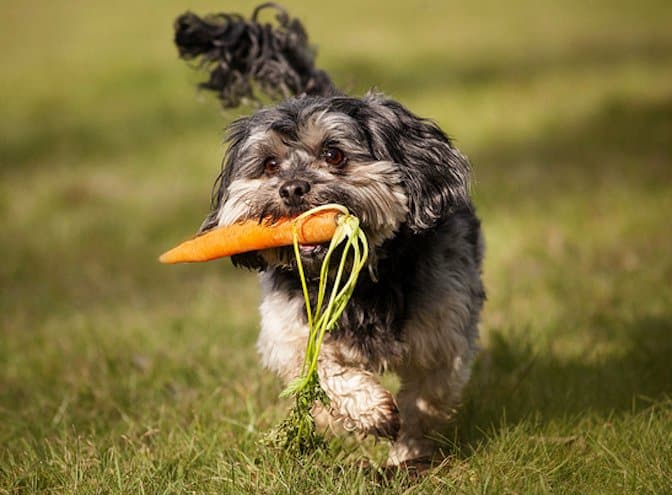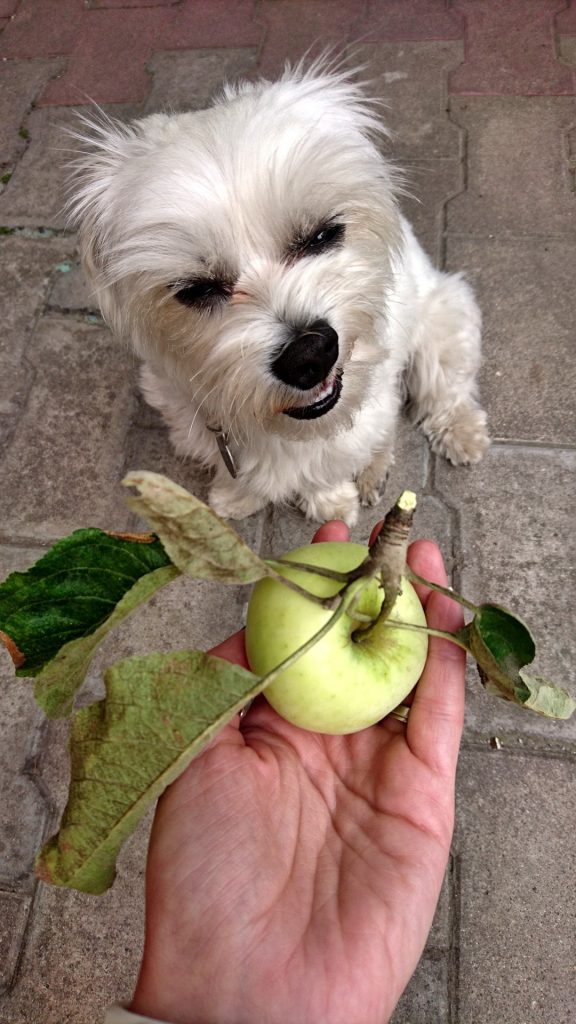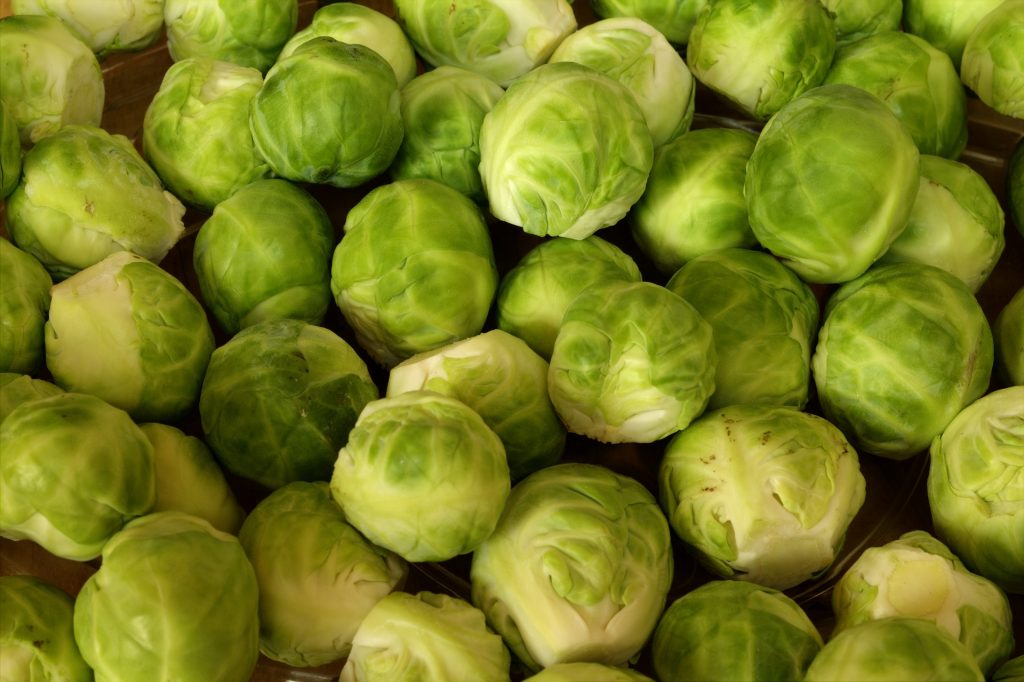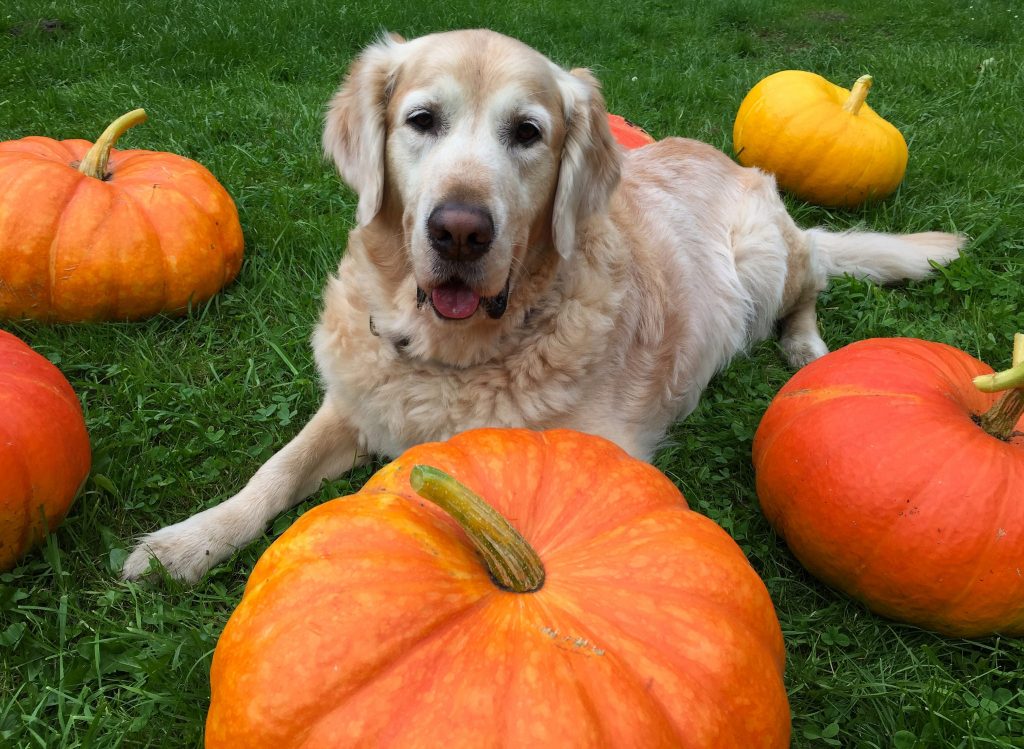We know fruits and vegetables are packed with healthy vitamins and minerals. We know they do wonders for the body. But do they offer the same benefits to our dogs?
Certain fruits and vegetables are definitely more suitable for dogs than others, and some should absolutely be avoided—including avocados, grapes, onions, garlic, and unripe tomatoes. Research is mixed as to whether your dog needs veggies and fruits, but some promising studies have shown that supplementing your dog’s meals with certain vegetables is good for your dog. This study showed a reduced rate of cancer in Scottish terriers that ate leafy greens three times a week, for instance.
We’ve put together a list of the best, most nutritious and suitable fruits and veggies for your pet. These can help with upset stomachs, freshen the breath, boost immune and heart health, and tidy up the digestive tract.
Tips for Serving Fruits and Veggies to Your Dog
Serve fruits and vegetables only periodically, and in small quantities. In general, they should be a small portion of a dog’s diet.
- Watch sugar content: Fruits contain a lot of sugar, so keep quantities small.
- High fibre: Fibre is a good thing, and most fruits and vegetables are also high in fibre. However, too much can lead to diarrhea or vomiting.
- Check for reactions: Always keep an eye on your dog after introducing a new ingredient into her diet.
1. Apples
Apples contain antioxidants, dietary fibre, vitamin A, and vitamin C. Some dogs will enjoy their crunchy texture (almost like a chew toy!). They help freshen doggy breath and improve dental hygiene. With their fibrous insides, they’re a bit like an all-natural toothbrush. But be sure to wash and slice apples before serving, and remove the core and seeds, which contain trace amounts of cyanide. You can also add a bit of peanut butter if your dog is reluctant to give the fruit a try at first.
2. Bananas
Like apples, bananas are a great source of dietary fibre, potassium, magnesium, and vitamins B6 and C. Be sure to peel bananas before serving. You can slice and serve them as treats or mash them and add them to your dog’s food. No more than half a banana is suitable for a medium-sized dog. You can also mash a banana, squish it inside a Kong toy, and freeze it before sharing to give your dog a tasty project on a hot a summer day.
3. Blueberries
Blueberries are a good source of dietary fibre, antioxidants, and vitamin C, which boost a dog’s digestive and immune systems, and help maintain healthy brain function. Share just two or three frozen or fresh blueberries periodically.
4. Brussels Sprouts
Brussels sprouts are rich in fibre and antioxidants, which help reduce inflammation in the body and improve overall blood circulation. They’re also loaded with vitamins. Brussels sprouts are good for cleaning out the colon and improving digestive health, but they also make dogs a bit gassy. Serve only one to three sprouts at a time, depending on the size of your dog. Make sure to remove the hard, nubby stem and slice each sprout in half. Cook plain before serving.
5. Cantaloupe
Cantaloupe contains vitamins A and C, beta-carotene, folic acid, antioxidants, and dietary fibre. All of these good things, taken together, benefit your dog’s eyes and fur, decrease inflammation in the body, and improve digestive health. Be sure to remove the rind and seeds before sharing and offer only a few bites of cantaloupe periodically.
6. Carrots
Carrots are a healthy snack for humans and dogs, and a great substitute for traditional dog treats. They’re low in calories, high in fibre, and an excellent source of vitamin A and potassium. You can share plain, cooked carrots by adding them to your dog’s usual bowl of food, or share raw carrots periodically as a snack. Make sure the carrot stick is cut into manageable chunks to prevent choking. Frozen carrots (sliced or diced) can help teething puppies soothe their gums.
7. Green Beans
Green beans are an excellent source of fibre, magnesium, vitamin A, vitamin C, and vitamin K. The fibre in green beans will help your dog feel full longer without piling on unnecessary calories. Dogs will enjoy eating cooked or fresh (not tinned) green beans as a snack or treat, added to wet food, or as part of a homemade meal containing other healthy ingredients.
8. Pumpkin
Pumpkin is high in fibre and does wonders for the digestive system. It’s rich in fatty acids, which are good for the skin and fur. Pumpkin also contains beta-carotene, antioxidants, and tons of healthy minerals. Be sure to serve tinned pumpkin (not raw, sweetened, or spiced). Add a tablespoon to your dog’s usual meal. You can freeze excess pumpkin in ice trays, then thaw and serve as needed.
9. Spinach
This leafy green vegetable is loaded with nutritional benefits for humans and dogs. Spinach contains vitamins A, B, C, and K, as well as calcium, iron, fibre, manganese, folate, and potassium. It boosts the immune system, heart health, energy levels, and vitality. Offer your dog blandly cooked spinach (no butter, onions, garlic, salt, or pepper), and make sure you chop the leaves well before sharing. It also helps to incorporate spinach into your dog’s usual meal (rather than serving it on its own) so it’s easier to chew and swallow.
10. Sweet Potatoes
Sweet potatoes are high in fibre, and they contain vitamin B6, vitamin C, several beneficial minerals, and beta-carotene, which is thought to help protect against cancer and heart disease. Add a teaspoon (for small dogs) to a tablespoon (for large dogs) of steamed or boiled sweet potatoes to your pet’s usual bowl of food.
11. Watermelon
A watermelon is like a giant health-bomb! It’s low in calories and packed with nutrients, like potassium, beta-carotene, and magnesium. It also contains vitamins A, B6, and C, and helps boost immune system health. Be sure to remove the seeds before sharing and don’t offer your dog the rind, which is difficult to chew and digest.
Want to get more vegetables into your dog’s diet? You can also dehydrate them to use as cheap and healthy treats but remember, it’s important to only give them small portions of fruit and veg! And if you ever need someone else to spoil your dog when you can’t be there, check out Rover.com to find local sitters who offer dog boarding along with dog cuddles and healthy treats.







